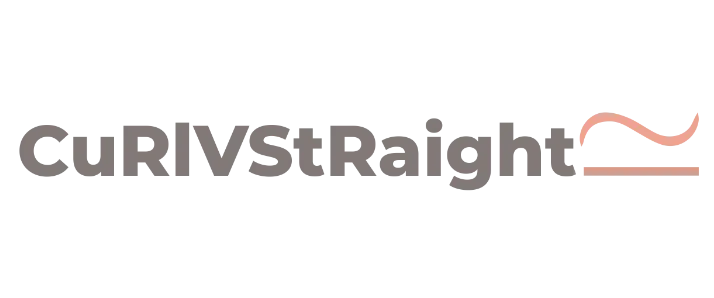
Alright, hair enthusiasts, let’s cut right to the chase. Ever found yourself staring at the shower drain, wondering *what’s happening* to your precious locks? Well, you’re not alone, and there’s a good chance zinc—or the lack thereof—could be a piece of this hairy puzzle.
The Hair Conundrum: Is Zinc the Missing Link?
Hair loss is frustrating, right? You brush, you style—then, **bam!** Hair everywhere. While it’s easy to point fingers at stress or age, there’s a lesser-known culprit in the wings: zinc deficiency. That’s right, tiny zinc plays a massive role in your hair’s health. Trust me, understanding this mineral—and how it ties to your hair—is like getting backstage passes to the rock concert of hair vitality.
Before diving into how zinc works its magic, let’s spread it out on the table: what happens when you don’t have enough?
Zinc Deficiency: Impact on Hair
So, what’s the deal with zinc deficiency? Simply put, not enough zinc can lead to hair loss, among other health hiccups. How, you ask? Here’s a straight-up snapshot:
- Hair Loss: Lack of zinc affects the hair growth cycle, shifting follicles into a resting state and resulting in hair thinning and shedding.
- Frizzy and Fragile Strands: Zinc’s connection to protein synthesis means it bolsters your hair integrity. Without it, your hair could turn frizzy and fragile faster than you can book that salon appointment.
- Scalp Issues: Zinc has anti-inflammatory properties. Without it, you might experience scalp problems like dandruff and slower healing of scalp irritations.
Short on zinc might mean defending against nutrient hair loss is somewhat of an uphill battle. But let’s not get discouraged, because understanding this nutrient is the first step towards lush, resilient hair.
Why Zinc Matters: A Behind-the-Scenes Hero
Imagine zinc as one of those low-profile sidekicks that silently handle business without a fuss. It doesn’t need the spotlight—just like you might not immediately usher credit its way for your good hair days. But without it, things can get tangled quite literally.
Zinc’s Influence on Hair Growth

- Protein Synthesis Enhancement: Zinc plays a key role in protein synthesis, which is crucial for the formation of keratin—the protein that makes up your hair. No zinc. No keratin. Simple as that.
- Cell Division Support: Fast-growing cells like hair cells need zinc for optimal division and replication. This directly impacts how quickly and effectively your hair grows.
- Maintaining Oil Gland Functionality: Zinc helps keep your scalp’s oil glands working efficiently, which is vital to stay away from a too-oily or too-dry environment.
How Does Zinc Compare With Other Hair-Friendly Nutrients?
You’re probably thinking, “Okay, zinc’s cool—but what about biotin, iron, or even good ol’ vitamin D?” Great question. Here’s a quick table comparison for you:
| Nutrient | Role in Hair Health | Key Benefit |
|---|---|---|
| **Zinc** | Involved in cell division, enhances keratin production, regulates oils | Prevents hair thinning |
| **Biotin** | Supports keratin infrastructure via protein metabolism | Strengthens hair, reduces loss |
| **Iron** | Facilitates oxygen delivery to cells for growth | Essential for hair structure |
| **Vitamin D** | Plays a part in new follicle creation | Boosts new hair growth |
Each of these superheroes brings their own skill set to the team. Sometimes, the enemy (nutrient hair loss) requires backup—and zinc is ready and willing.
Natural Zinc Sources: Food, Not Just Supplements
Supplement pills are popular, but nature provides some delightful, pretty tasty zinc options. Finding the right source is easier than you might think. Let’s make this a kitchen conversation.
Foods Rich in Zinc
- Oysters: The zinc kingpin. Nothing comes close to their zinc content. With just a serving, you might meet daily requirements.
- Red Meat and Poultry: An accessible and tasty way to score some zinc. Venison, beef, and chicken can all up your intake.
- Nuts and Seeds: Pumpkin seeds, sunflower seeds, and almonds offer good vegetarian and vegan choices.
- Beans and Lentils: Talk about a powerhouse for vegetarians—these legumes have a less direct but valuable role.
- 5. **Dairy Products: Cheese and milk present themselves not just for calcium, but to nudge your zinc levels too.
Steering your diet to naturally include these foods could enrich your body’s zinc parade better than relying solely on synthetic capsules.

Get Cooking: Balancing Zinc for Better Hair
Not sure how to incorporate these into your gourmet experiments? Try substituting minced meat for beans in a salad or layering chicken and dairy for hearty goodness. Feeling fancy? Whip up your own oysters’ platter for a zesty zinc punch.
Supplementation: What to Consider
Sometimes diet isn’t enough, or you have dietary restrictions and need alternatives to bolster your zinc levels. Here’s the skinny: approach zinc supplementation like a fine art, not every time slapping paint on a canvas.
Zinc Supplement Safety Tips
- Dosage Limitation: Stick to doses prescribed by health professionals; go big and you could impair additional nutrient absorption.
- Zinc Type: Zinc gluconate, zinc acetate, and zinc sulfate offer varying absorption levels. Have a chat with a healthcare provider to align with personal preference and need.
- Balance Matters: Remember, an overload of zinc can contribute to deficiencies elsewhere, like copper imbalance.
Crafting Your Own Zinc-fix Hair Routine
Ultimately, we’d love to suggest brushing zinc shampoo on like a paintbrush on a canvas for instant transformation. Life’s not quite that convenient.
Think of your zinc intake as one side of a triangle: incorporate scalp massages that stimulate circulation, mild, sulfate-free shampoos to nurture your scalp peace, and a touch of patience for texture and sheen evolution.

Step-by-Step Hair Health Plan
- Assess Your Diet: Track the zinc-rich foods you eat; consider whether supplementation might even be necessary.
- Routine Overhaul: Clean up products that could undermine assistance from zinc—bye toxins and sulfate-loaded goops!
- Professionally Scooped Check-Up: Consultation with a dietitian or healthcare expert can point you toward precise recommendations.
And hey, remember to breathe. Transformation isn’t overnight. But pushing hair from shade to light is achievable by loading it up with nutrients and patience.
Can You Overdo It? Yes, Here’s How to Avoid It
Flipping the cap on too many zinc supplements might seem like a gateway to superhero hair status, but let’s tap the brakes right there. Exaggerated intake doesn’t shift your mane into high gear. It might detour to a road riddled with issues:
- Nausea and Stomach Cramps: Hit no better than receiving the gifts of nausea and stomach discomfort.
- Interference with Copper Absorption: High zinc militantly pushes aside copper, which might sneakily lead to additional problems, such as anemia.
Keep it balanced, keep it divine.
Pulling It All Together: Your Zinc Hair Growth Journey
While zinc presents an essential nutrient for hair success, what it preludes is every bit crucial: understanding, consistency, and pacing yourself across hair trials and tribulations.
Embrace the sizzling reality—luscious hair can remain within grasp, inviting you for a ceaseless show in that hair growth journey. While no singular solution accomplishes the task, zinc sure does play its integral tune, conducting an undervalued yet monumental symphony in the concert hall of hair health.
And hey, next time you glance at that bottle of shampoo or open the fridge door, consider the hidden power of zinc, waiting beyond conventional fame. What’s okay to give a try? Observing zinc through kitchen lens or discussing hair treasure with an expert—both worth the attempt when taking control of your inner hairstylist persona.
Don’t fret over math or megadoses—just step into that zinc-ignited journey, with mighty strands, ready to seize and redefine your hair atmosphere. Cheers to all the zinc warriors gearing towards extraordinary hair evolution. You’ve got this!
Frequently Asked Questions
What role does zinc play in hair growth?
Zinc is crucial for hair health, supporting keratin production, the hair growth cycle, and follicle integrity. It acts as a cofactor in enzymes necessary for keratin synthesis and is involved in cell division and protein synthesis during the anagen (growth) phase of the hair cycle[1][4][5).
Can zinc deficiency lead to hair loss?
Yes, zinc deficiency can lead to hair loss. It can cause hair shedding, brittleness, and scalp issues due to its impact on the structural integrity of hair follicles and the hair growth cycle. Low zinc levels have been associated with conditions such as alopecia areata and telogen effluvium[1][4][5).
How effective is zinc supplementation for hair growth?
Zinc supplementation has shown promising results for certain types of hair loss, particularly alopecia areata. Studies have indicated that zinc can promote hair regrowth and improve hair density. However, the evidence is mixed, and more research is needed to confirm its effectiveness for all types of hair loss[1][3][5).
What are the risks of taking too much zinc for hair growth?
Taking too much zinc can be detrimental to hair health. Excessive zinc intake can disrupt the absorption of other essential minerals like magnesium and iron, promote testosterone production, and lead to hormonal imbalances that can cause hair thinning and loss. It can also cause side effects such as vomiting, nausea, and diarrhea[2][3][5).
References


Leave a Reply